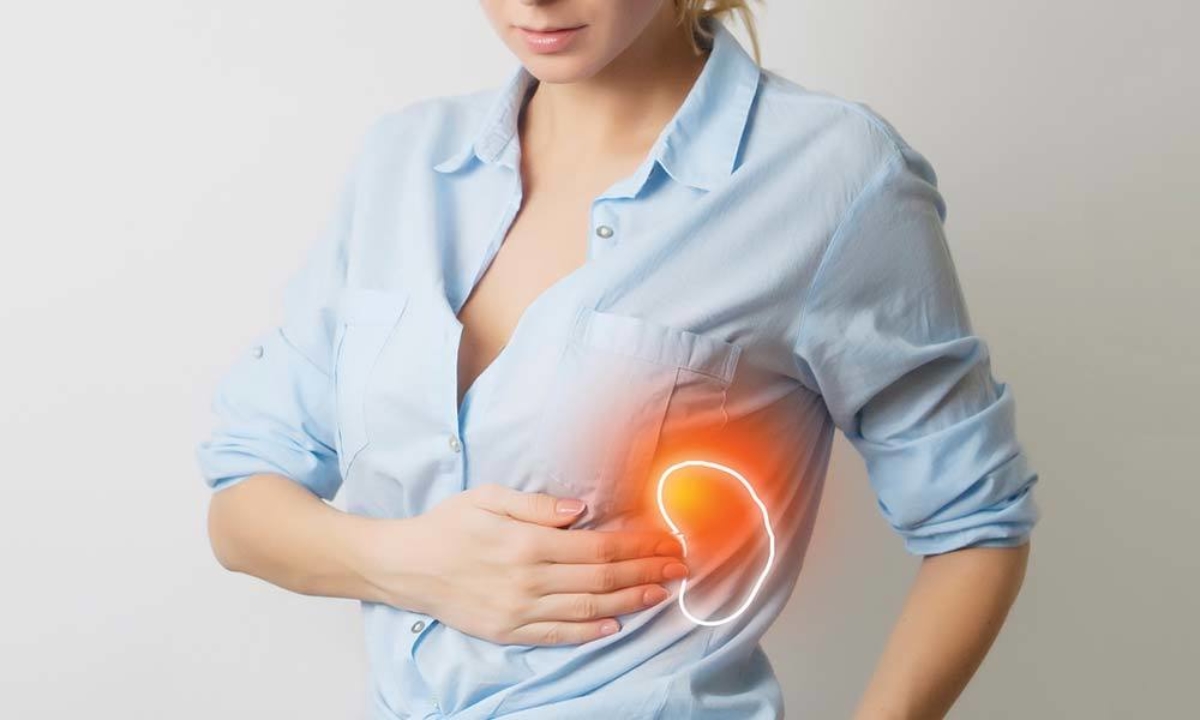Spleen Pain
Overview | Possible Causes | Care and Treatment | HOME REMEDies | When to Call the Doctor | References

Overview
The spleen is a fist-sized organ in the upper left side of your abdomen, next to your stomach and behind your left ribs.
It's an important part of your immune system, but you can survive without it. This is because the liver can take over many of the spleen's functions.
The spleen has some important functions:
- It fights invading germs in the blood (the spleen contains infection-fighting white blood cells)
- It controls the level of blood cells (white blood cells, red blood cells and platelets)
- It filters the blood and removes any old or damaged red blood cells
Spleen pain is usually felt as a pain behind your left ribs. It may be tender when you touch the area. This can be a sign of a damaged, ruptured or enlarged spleen.
Possible Causes
A damaged or ruptured spleen
The spleen can become damaged or may burst (rupture) after an injury, such as a blow to the abdomen, a car accident, a sporting accident or broken ribs.
Rupture can happen straight away or it may happen weeks after the injury.
Signs of a ruptured spleen are:
- Pain behind your left ribs and tenderness when you touch this area
- Dizziness and a rapid heart rate (a sign of low blood pressure caused by blood loss)
Sometimes if you lie down and raise your legs, you can feel the pain at the tip of your left shoulder.
A ruptured spleen is a medical emergency, as it can cause life-threatening bleeding.
Immediately go to your doctor if you think you have ruptured or damaged your spleen.
An enlarged spleen
The spleen can become swollen after an infection or injury. It can also become enlarged as a result of a health condition, such as cirrhosis, leukemia or rheumatoid arthritis.
An enlarged spleen does not always cause symptoms.
Otherwise, look out for:
- Feeling full very quickly after eating (an enlarged spleen can press on the stomach)
- Feeling discomfort or pain behind your left ribs
- Anaemia and fatigue
- Frequent infections
- Easy bleeding
Doctors can often tell if you have an enlarged spleen by feeling your abdomen. A blood test, CT scan or MRI scan can confirm the diagnosis.
Care & Treatment
The spleen is not usually removed if it's just enlarged. Instead, you'll receive treatment for any underlying condition and your spleen will be monitored. You may be prescribed antibiotics if there's an infection.
You'll need to avoid contact sports for a while, as you'll be at greater risk of rupturing the spleen while it's enlarged.
Surgery is only necessary if the enlarged spleen is causing serious complications or the cause cannot be found.
Surgery to remove the spleen
You may need an operation to remove your spleen, known as a splenectomy, if it's not working properly or it's damaged, diseased or enlarged.
Sometimes just part of your spleen can be removed, which is called a partial splenectomy.
If there's time, you'll be advised to have certain vaccinations before the operation. This is because spleen removal weakens your immune system and can make you more likely to get an infection.
Laparoscopy
Most operations to remove spleens are carried out using keyhole surgery (laparoscopy).
Keyhole spleen removal allows a surgeon to get inside your tummy (abdomen) to your spleen without having to make large cuts.
This means you'll have less scarring and may recover from the operation more quickly. But you'll still need a general anaesthetic.
The procedure involves:
- Making several small cuts in your tummy
- Guiding a laparoscope into your body through one of the cuts so doctors can see what they're doing
- Passing thin instruments into your tummy through the other cuts to remove your spleen (gas will be pumped into your tummy to make this easier)
The cuts are then stitched up or sometimes glued together.
You may be able to go home the same day, or you may need to stay in hospital overnight.
If you go home the same day, someone will need to stay with you for the first 24 hours.
Open surgery
Open surgery is where one large cut is made. It may be needed if your spleen is too large or too damaged to be removed using keyhole surgery. Often, in emergencies, this is the preferred method.
You'll need a general anaesthetic and may need to stay in hospital for a few days to recover.
Home Remedies
Avoid contact sports- such as soccer, football and hockey- and limit other activities as recommended by your doctor. Modifying your activities can reduce the risk of a ruptured spleen.
It's also important to wear a seat belt. If you're in a car accident, a seat belt can help prevent injury to your spleen.
Finally, be sure to keep your vaccinations up to date because your risk of infection is increased. That means at least an annual flu shot, and a tetanus, diphtheria and pertussis booster every 10 years. Ask your doctor if you need any additional vaccines.
When to Call the Doctor
See your doctor promptly if you have pain in your left upper abdomen, especially if it's severe or the pain gets worse when you take a deep breath.
To book online consultation to meet our expert doctor click on the link below
Reference
- https://www.mayoclinic.org/diseases-conditions/enlarged-spleen/
- https://www.nhs.uk/conditions/spleen-problems-and-spleen-removal/
- https://medlineplus.gov/spleendiseases.html






































































































